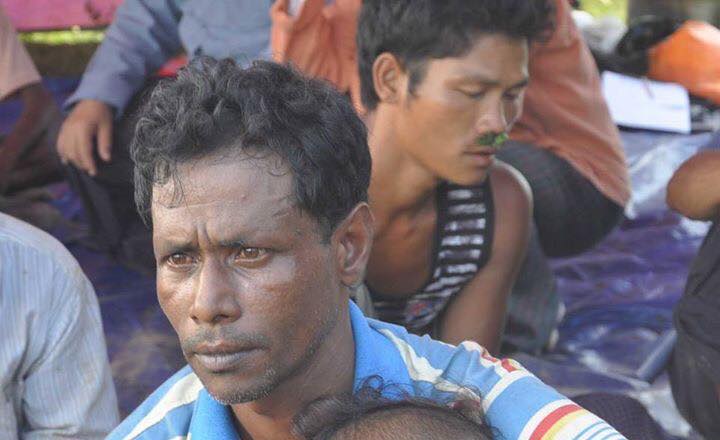The Arakan Rohingya Salvation Army released a statement on Twitter last night denying any involvement in the killing of 45 Hindu civilians whose bodies were exhumed by the Myanmar army this week or in the disappearance of dozens of others.
The army and the government, however, have heavily pushed the idea that “extremist terrorists” were behind the killings late last month.
Aside from an army-organized media tour of the area yesterday, the area remains closed-off to independent investigators, raising doubts about all accounts of the massacre.
STATEMENT (27.9.2017)
Burmese Govt has to Stop ‘Victim Blaming’, Allow Investigations into Atrocities;
ARSA Denies of Targetting Civilians pic.twitter.com/CwCkwfwrKx— ARSA_The Army (@ARSA_Official) September 27, 2017
On Sunday, the Myanmar army first reported its discovery of mass graves containing the bodies of Hindu civilians in an area in northern Rakhine called Kha Maung Seik, known locally as Fakirabazar. Then on Monday, the army reported the discovery of another 17 Hindu bodies in mass graves and claimed another 48 remain missing.
Reports shared by the Office of the Commander-in-Chief and by the Information Committee have attributed the killings to “extremist terrorists” from ARSA. Their reports quote Hindu residents of the area as saying the killings took place on or around August 25, when “300 ARSA extremist Bengali terrorists holding small arms, sticks, swords, and lances…arrested around 100 men and women.”
In testimonies collected by the state-run Myanmar News Agency and published by the Information Committee on Facebook, relatives of the victims also blame the killings on “terrorists,” who, they also say, raped women, chopped off limbs, and abducted captives to Bangladesh.
The words of bereaved families of #Hindus killed by #ARSA #terrorists in Northern #Rakhine #Myanmar
View More : https://t.co/Y2dHyX06bx pic.twitter.com/iw5GyhBtzD— Zaw Htay (@ZawHtayMyanmar) September 27, 2017
ARSA, in last night’s statement, said it “categorically denies that any of its members or combatants perpetrated murder, sexual violence, or forcible recruitment” in the area where the Hindu bodies were found.
Furthermore, the group said it expressed “its deepest sympathy for all victims of murder, persecution, war crime [sic], genocide, ethnic cleansing, or other crimes against humanity, irrespective of ethnic or religious background as perpetrated by the Burmese army and/or any other party to the conflict.”
Hindu refugees in Bangladesh who were in Kha Maung Seik on August 25 have recalled witnessing black-clad attackers entering their village, marching over 100 people into the forest, hacking them to death with machetes, and burying the bodies in freshly-dug mass graves.
One witness said her community was targeted for being Hindu but did not identify the attackers as Muslim or Rohingya militants.
Rohingya refugees have accused Buddhist mobs of carrying out the attacks to help the Myanmar government frame ARSA, just as they have allegedly been burning Rohingya villages for the same reason.
“Burmese military regime and Burmese government need to stop ‘victim-blaming’ and allow investigation of human rights abuses and atrocities,” the insurgent group wrote at the top of the statement.
In June, Myanmar’s Ministry of Foreign Affairs, headed by Aung San Suu Kyi, ordered a visa ban on the members of a UN-appointed fact-finding mission tasked with investigating alleged human rights abuses committed by the Myanmar military against civilians in Shan, Kachin, and Rakhine states.
Earlier this month, government spokesman Zaw Htay was caught sharing staged photos and claiming they depicted Rohingya civilians burning their own homes. Netizens quickly pointed out that the people in the photos were, in fact, poorly disguised Hindu residents of northern Rakhine State.




